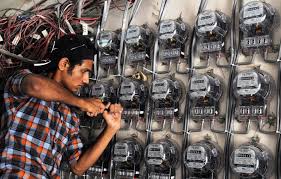Madrid July 28 2022: Spain is seeking to tax banks for windfall profits made from net interest and fees charged to clients, in the boldest move against lenders by any major European Union nation to offset the impact of a worsening cost-of-living crisis.
A bill introduced to parliament Thursday aims to set a 4.8% tax on Spanish banks. It also seeks to charge a 1.2% levy on the domestic sales of energy firms. The measures, put forward by parties of the ruling coalition, would also penalize companies that pass the costs of the new taxes on to their clients.
The details of the proposals put an end to more than two weeks of uncertainty over the government’s plans, initially outlined by Prime Minister Pedro Sanchez on July 12. Now the administration, which aims for approval later this year, will have to negotiate with a wide group of congressional allies to pass the bill in the splintered parliament, where no party has a majority.
The government has struggled in recent months to gather support to pass significant legislation, but it has never lost a major vote. That track record indicates that it will likely clinch enough backing for the windfall taxes.
The levies, which aim to raise 7 billion euros ($7.1 billion) over the next two years, have raised tensions between Sanchez and big business as governments across Europe scramble to raise funds to ease the impact of record inflation exacerbated by Russia’s invasion of Ukraine.
The threshold for banks is set at 800 million euros on revenues from net fees and interests. The levy on energy firms would apply to companies with sales in Spain of above 1 billion euros in 2019.
Hampering Credit
Bank executives have said the planned tax could hamper credit for an economy still struggling to recover from the pandemic and facing headwinds from the war in Ukraine. Lenders also say that a rise in interest rates, as is happening in Europe, doesn’t necessarily result in extra profits.
For their part, energy firms have been arguing that they aren’t seeing windfall profits and that any such tax is unfair on them. Iberdrola SA, the country’s largest utility, yesterday said that its profit in Spain is weakening and that it is oil and gas firms which are reaping large benefits from the upheaval in global energy markets.
Sanchez’s surprise announcement of the planned tax, during a speech to Congress, wiped out billions of euros off banks’ market value. The shares have since recovered as the European Central Bank moved to increase interest rates.
For energy firms, the blow has been far less as the possibility of a windfall tax had been floated by officials for weeks, and governments in other countries across Europe have made similar moves.
The proposal may prompt the European Central Bank to position itself on the tax as it has done on similar taxes in countries including Lithuania and Poland. ECB Vice President Luis de Guindos cautioned that the tax shouldn’t damage the solvency of the banking system, or crimp lending.










